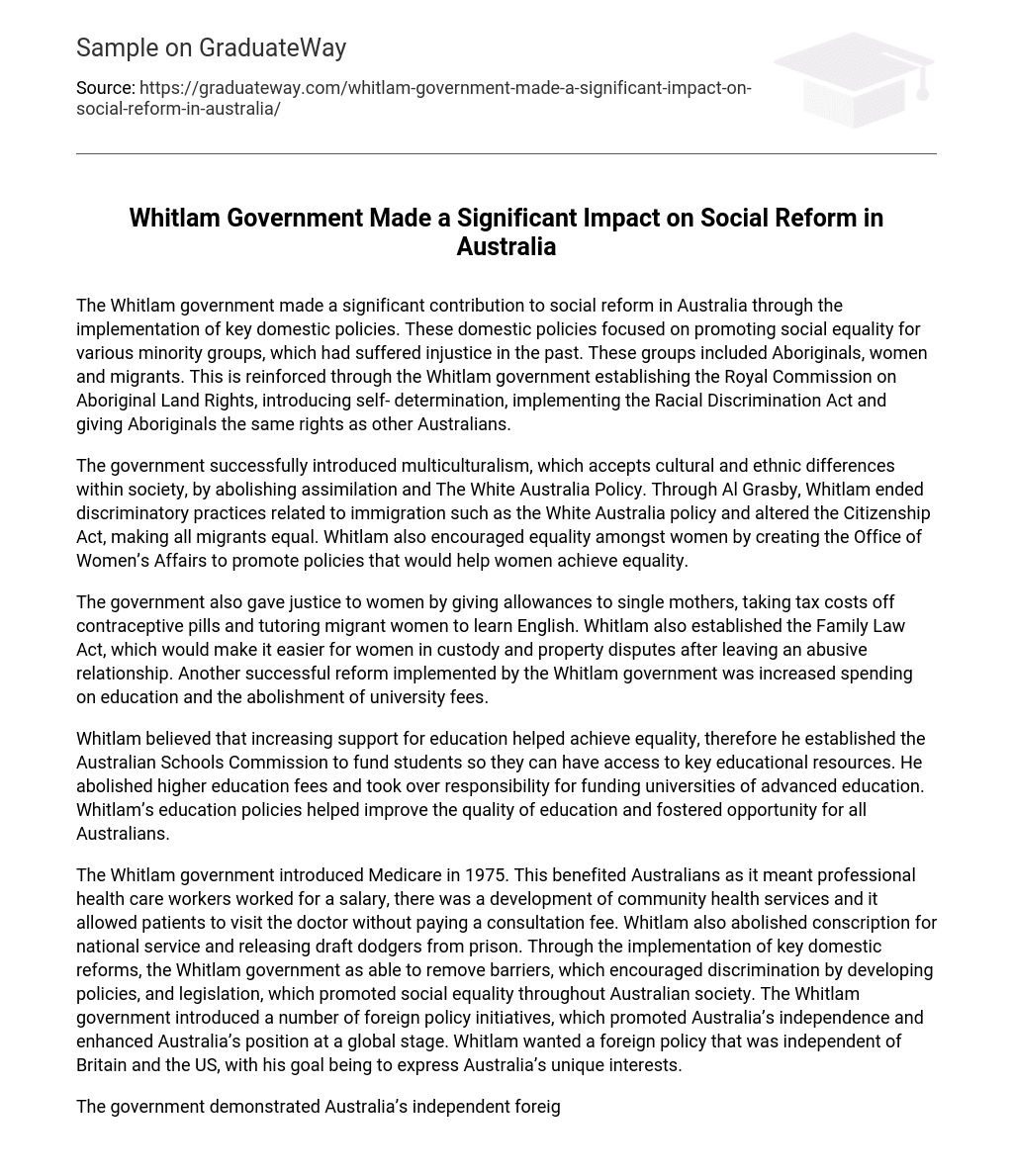The Whitlam government made a significant contribution to social reform in Australia through the implementation of key domestic policies. These domestic policies focused on promoting social equality for various minority groups, which had suffered injustice in the past. These groups included Aboriginals, women and migrants. This is reinforced through the Whitlam government establishing the Royal Commission on Aboriginal Land Rights, introducing self- determination, implementing the Racial Discrimination Act and giving Aboriginals the same rights as other Australians.
The government successfully introduced multiculturalism, which accepts cultural and ethnic differences within society, by abolishing assimilation and The White Australia Policy. Through Al Grasby, Whitlam ended discriminatory practices related to immigration such as the White Australia policy and altered the Citizenship Act, making all migrants equal. Whitlam also encouraged equality amongst women by creating the Office of Women’s Affairs to promote policies that would help women achieve equality.
The government also gave justice to women by giving allowances to single mothers, taking tax costs off contraceptive pills and tutoring migrant women to learn English. Whitlam also established the Family Law Act, which would make it easier for women in custody and property disputes after leaving an abusive relationship. Another successful reform implemented by the Whitlam government was increased spending on education and the abolishment of university fees.
Whitlam believed that increasing support for education helped achieve equality, therefore he established the Australian Schools Commission to fund students so they can have access to key educational resources. He abolished higher education fees and took over responsibility for funding universities of advanced education. Whitlam’s education policies helped improve the quality of education and fostered opportunity for all Australians.
The Whitlam government introduced Medicare in 1975. This benefited Australians as it meant professional health care workers worked for a salary, there was a development of community health services and it allowed patients to visit the doctor without paying a consultation fee. Whitlam also abolished conscription for national service and releasing draft dodgers from prison. Through the implementation of key domestic reforms, the Whitlam government as able to remove barriers, which encouraged discrimination by developing policies, and legislation, which promoted social equality throughout Australian society. The Whitlam government introduced a number of foreign policy initiatives, which promoted Australia’s independence and enhanced Australia’s position at a global stage. Whitlam wanted a foreign policy that was independent of Britain and the US, with his goal being to express Australia’s unique interests.
The government demonstrated Australia’s independent foreign policy through their decision to distance Australia from the military commitments of the Vietnam war, along with their decision to visit the People’s Republic of China and recognise their communist government. Australia portrayed their independence from the UK through the replacement of the British national anthem with ‘Advance Australia Fair’ as well as altering the Australian passport.
Whitlam promoted Australia’s international position by getting involved in human rights and the UN. He was determined to see Australia perform international duties as a UN member, and he encouraged Australian involvement in organisations such as the World Health Organisation. Under Whitlam, the Australian government granted Papua New Guinea self- government and independence within 1973-75. The foreign policy initiatives of the Whitlam government helped establish Australia’s position as a key member of regional and global affairs.





